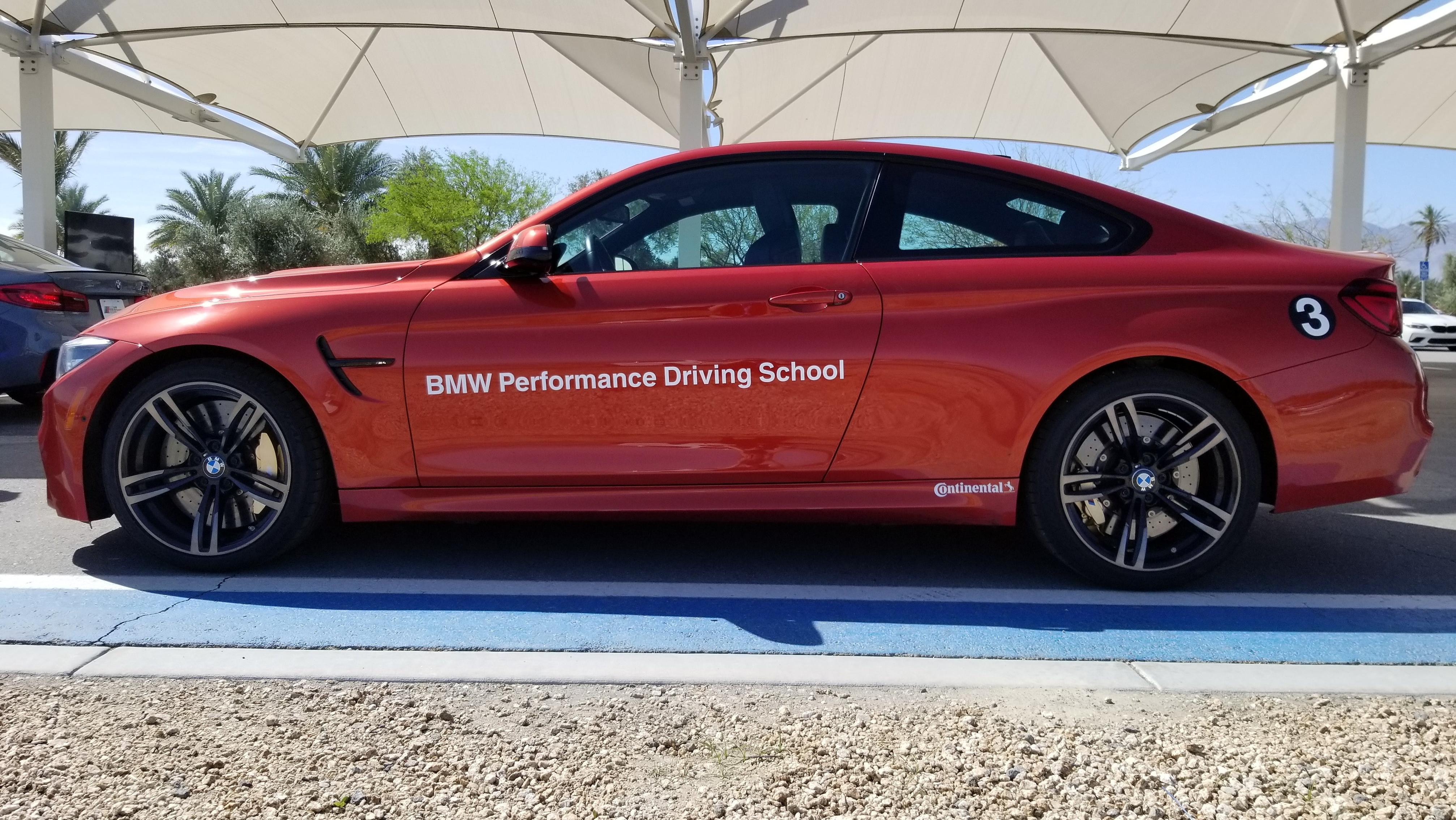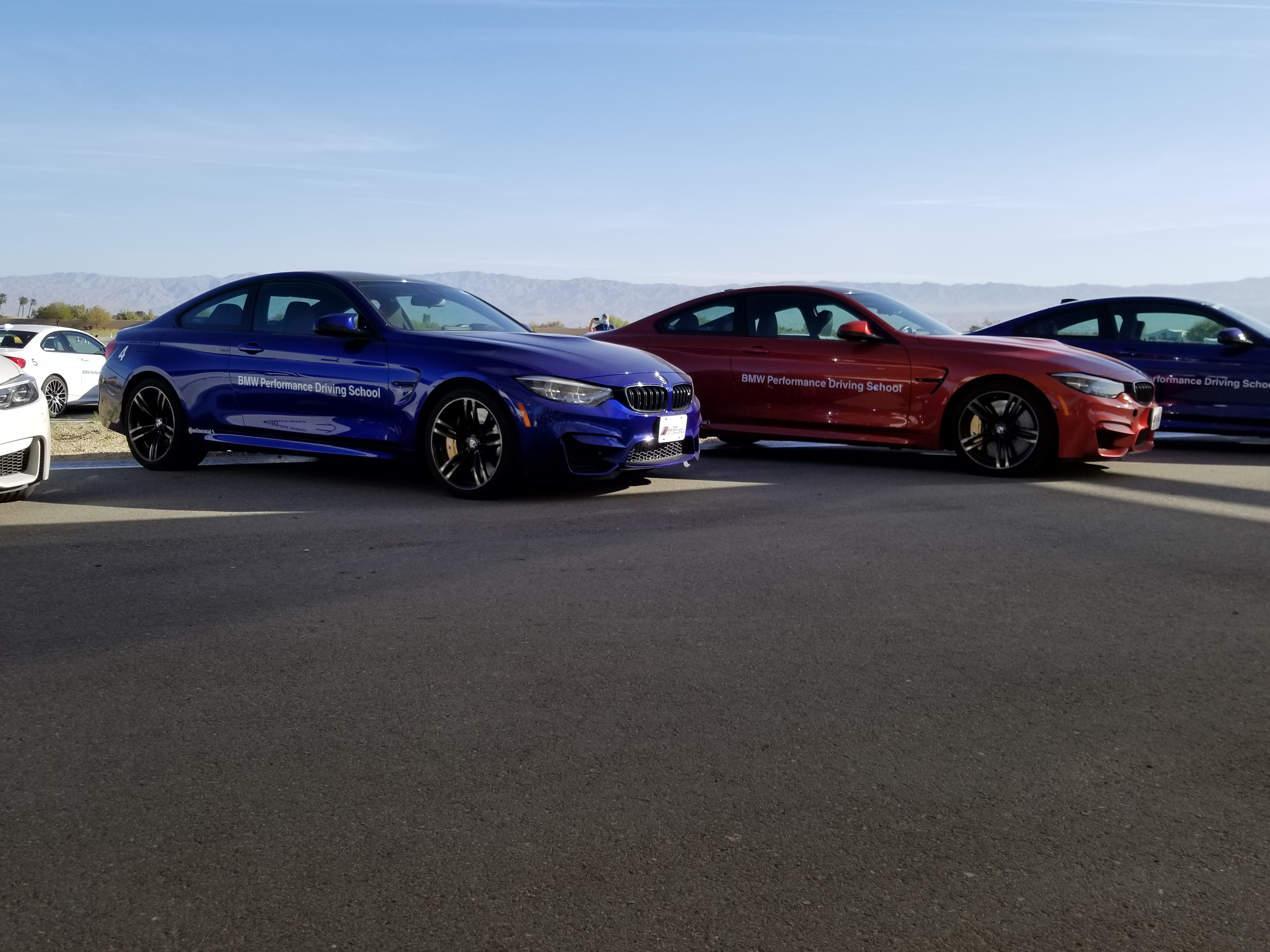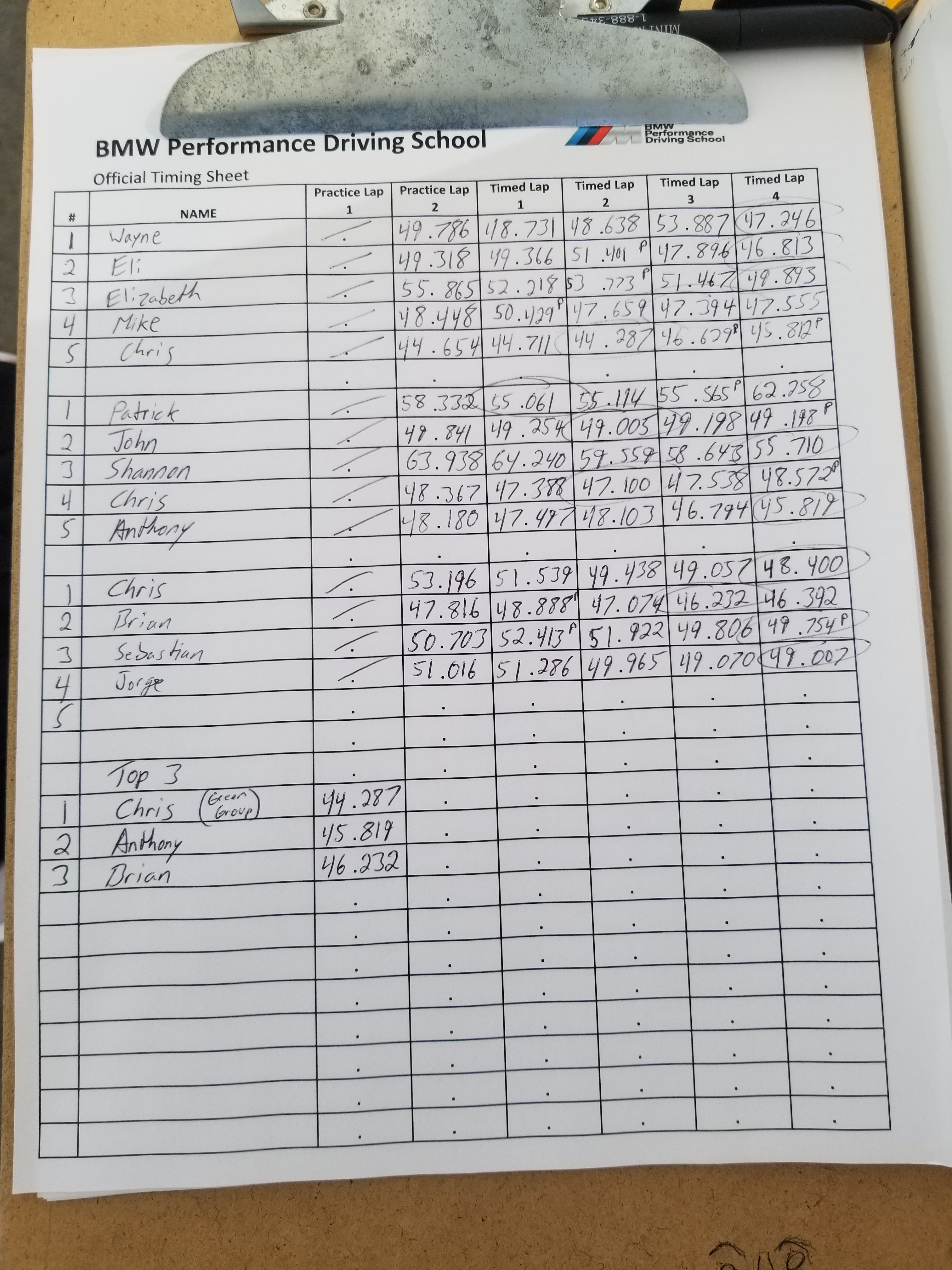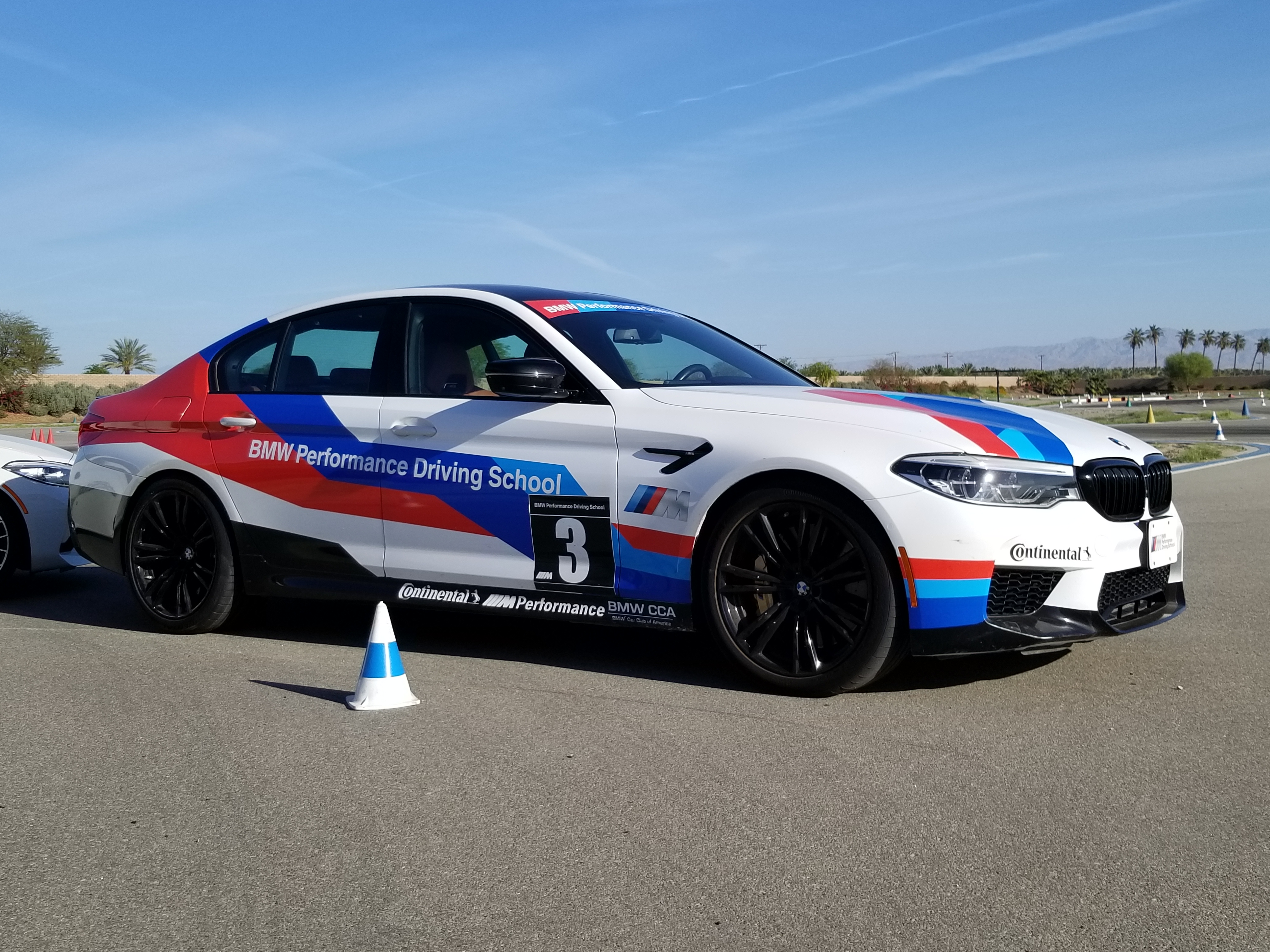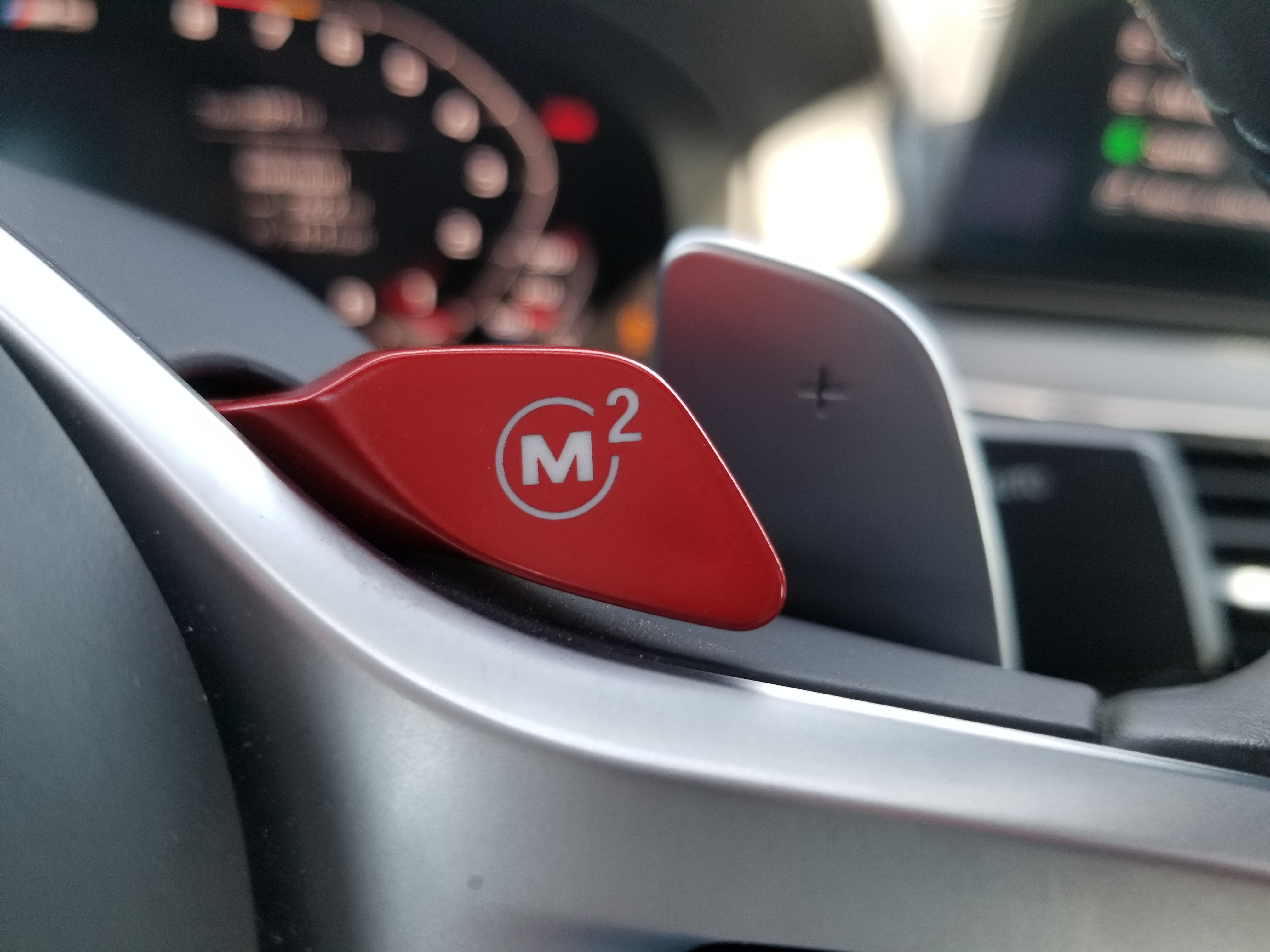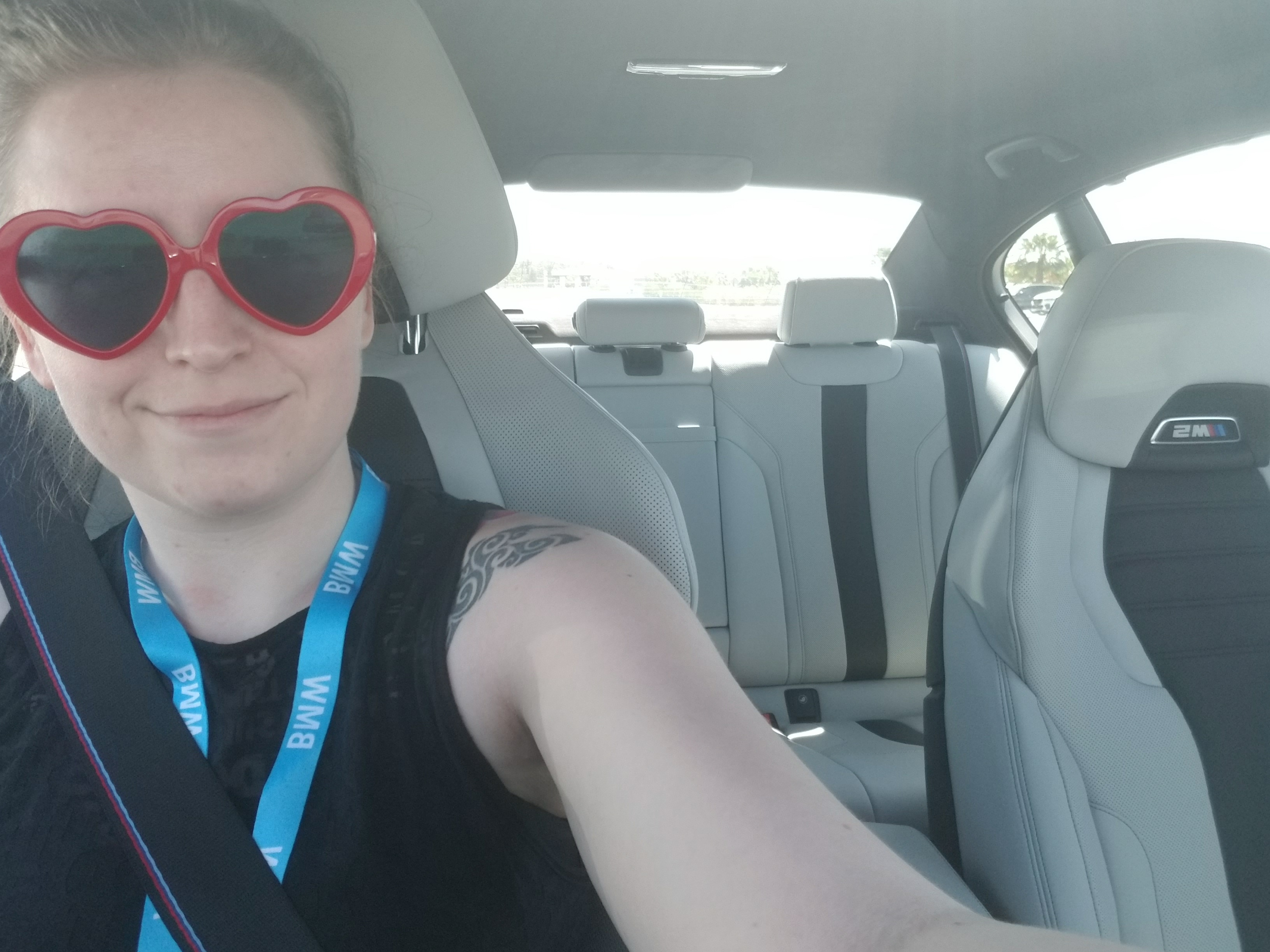How To Conquer BMW's Performance Driving School As A Beginner
There's a certain pressure when you show up to car-related events as an automotive journalist, and I definitely felt that as I introduced myself to my group at BMW's Performance Driving School in Thermal, California. We were all about to take on the single-day M Driving School program, and we were coming at it from all different experience levels, since I was basically just crashing a regular ol' event.
But still. You say you write about cars, and there's a certain expectation—even though I was sure to preface the situation by noting that I've previously had about ten whole minutes of on-track experience.
I was thankful, then, when both BMW's instructors and my fellow drivers were extremely chill about my status as long-ish-time car journalist but inexperienced track day driver. It allowed me to ease into the program in a way I was worried I'd struggle with—which means I get to tell all you fine folks about how to conquer your first driving school.
(Full disclosure: BMW North America flew me out to Palm Springs, California and hosted me for a few nights while I took on the BMW Performance Driving School for A Girls Guide to Cars. They were kind enough to let me write about the experience for Jalopnik, too.)
What’s The BMW Performance Driving School?
As the name suggests, the BMW Performance Driving School is a program where you show up to one of BMW's two North American race tracks to learn the ins and outs of fast cars. BMW will provide you with the machines and the instructors; you just need to be ready to improve.
There are a few different events and experiences. You can take your teen here to learn how to drive, or you can knock out one of the various M Driver's Schools offered by the company: one-day, two-day, advanced, and M4 GT4 schools are all available. You can even get your race license here.
BMW had me out for the one-day M School, which will set you back about $1,550. From eight in the morning to four at night, you'll learn the ins and outs of performance driving with a lunch to keep you motivated. There's a quick classroom session in the morning, and then you'll get behind the wheel to learn how to tackle a single corner, drift on the skid pad, put together the optimal line on an autocross course, and make the most of a lead-follow session on the big boy race track.
It's tough. You'll have six 45-minute on-track sessions; five-minute breaks between sessions to hydrate, use the bathroom, and get yourself comfortable in your next car (always a struggle for the short folks like me); and an hour-long lunch. To put it simply: your brain is going to be crammed with performance driving knowledge, so it can be helpful to know what to expect when you get to the track.
Be Ready For Criticism
You're at a driving school, so you're here to learn. That means you need to be cool with hearing a lot of criticism from the instructors throughout the day. No one is ever mean, and all the feedback you get can be directly applied to a skill you can hone on the track, but you have to be ready for some blows to the ol' ego (or, at the very least, get comfortable with the fact that you're an absolute beginner).
There was one person in my group of 14 who was obviously just attending on behalf of the people who brought them out, and by the end of the day, that person just looked beat. They were ready to leave as soon as they could.
You're going to get the most out of a driving school if you're there to learn, not to flex. It would definitely be nice to end the day as the quickest person on the track, but, in my case, there was a mere seven percent chance of that happening—which didn't even take into account the fact that there were a lot of really skilled folks at the school that further weighed the odds against me.
But seriously—this is going to be the biggest contributing factor to your success or failure. There's this common stereotype that writers are really bad at taking criticism, but after years of creative writing workshops, I feel like I was well-primed to adapt to the necessary criticism (which was... pretty much everything the instructors said) and throw out the stuff I didn't feel would benefit me (basically just being told to drive faster; I knew I was at about the outer limits of my ability and that going any faster was going to have me sacrificing my ability to put together the racing line, which I'd prioritized as my goal for the day). If you think you already know everything about going fast, you're definitely not going to get much out of the school.
Track Your Incremental Success
You're probably going to experience a wild learning curve during the different components of the track day. Track it.
I kept my notes app open on my phone and logged lap times and speed after every run while I was waiting in line to try it again. I'm the kind of person that can get easily overwhelmed and immediately forget every number I tried to smoosh into my brain, so keeping track of my runs was a way for me to tangibly understand how I was improving and how my most recent change in driving style impacted my speed. If I'd had more time, I would have also noted what specific element of my driving I was trying to change, but things move pretty quickly.
All told, hard numbers serve as a great motivator, and they provide a metric for your success. If you steadily go faster, that's awesome; you're making progress. If your times are consistent, then that's pretty cool—but is there anything else you can do to pick up the pace? Are your speeds all over the damn place? Buddy, you've got some soul searching to do.
Try To Relax
I live a pretty mild lifestyle, so I simply do not click with activities that require me to use adrenaline to make rapid-fire decisions. This is why I am very bad at most video games, racing simulations, or fast driving. This is why I can feel totally at home with someone else driving me around really fast but why I struggle to do it myself. This is why I struggle to watch my sister play a game as simple as Stardew Valley.
But being tense and panicky is straight-up the worst possible thing you can do when you're at a performance driving school. If you get tense, your mechanical driving skills falter. If your mind is racing, then you're going to have a harder time keeping the racing line straight.
Being so high-strung was my biggest enemy, especially when I knew I was competing against other people. It was nerve-wracking to take on the autocross course during practice runs. I was in absolute shambles, though, when we started timing the runs to determine the fastest driver of the day.
If that sounds like you, make sure to focus on deep breaths and try to shut your brain up for a few seconds. I didn't find the best strategy for relaxing while I was behind the wheel, but I think there's also a big element of that that will come with practice.
Stretch It Out
You know how, every so often, there's a big debate about whether or not race car drivers are athletes? I challenge all of those people to take a single performance driving school program and report back to me about how damn sore they are the next day.
I was shocked by how badly my entire body hurt. I had funky bruises. My left buttcheek was sore from holding my body in place on the static pedal. My right thigh ached from pushing both the accelerator and the brake to the floor at rapid pace. My arms and back still felt like the muscles were tensed as I flew home the next day. I'll admit that I'm not currently in the best shape of my life, but I've been kicking my ass into gear with resistance training and shadow kickboxing classes—and I still had a hard time.
You're definitely going to want to stretch before and after your track day, and I'd honestly recommend stretching in between in-car exercises, too. You'll probably feel a hell of a lot better for it the next day, and your driving will benefit because you won't get fatigued from holding so much tension in your muscles.
Mainly? Just Have Fun.
It's not every day that you get to learn how to drive fast cars around a bunch of different race track situations. Enjoy it! You're going to take away so much more from the experience if you don't come into it with a bunch of expectations for yourself. Make it your mission to have fun above all, and the skill will follow.
